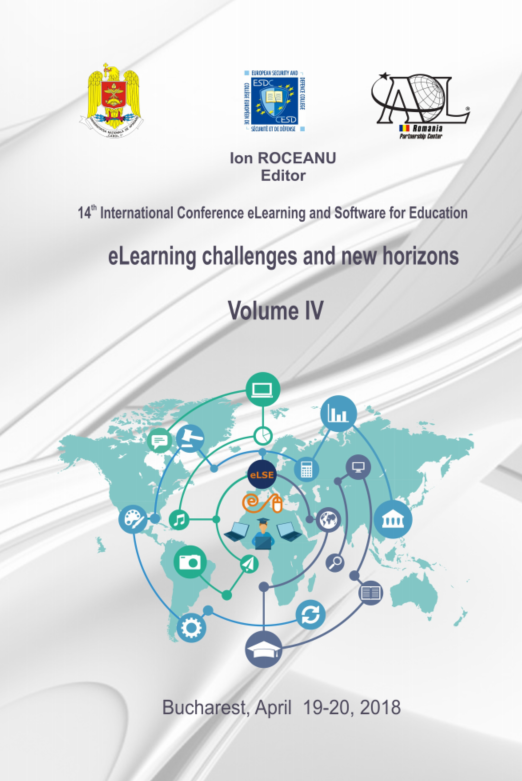Opportunities and Challenges in Higher Education System: Knowledge Transfer by e-Learning vs. Traditional Methods
Opportunities and Challenges in Higher Education System: Knowledge Transfer by e-Learning vs. Traditional Methods
Author(s): Clara-Beatrice Vîlceanu, Carmen Grecea, Sorin-Ioan HerbanSubject(s): Social Sciences, Education
Published by: Carol I National Defence University Publishing House
Keywords: new learning environment; higher education; ICT; regional development; collaborative work;
Summary/Abstract: New learning environments aim to developing abilities and skills for students through the use of information and communication technologies (ICT). The new strategies for restructuring the higher education system involve continuous improvement of the curriculum and educational programmes, in line with the evolution of technology and continually referring to similar institutions in the country (regional development) and in the European Union. Starting with the vision of acquiring in-depth knowledge of Geodesy and cadastre in the e-Learning System by students or anyone interested, an online network was implemented for university collaboration to develop the capacity of providing superior competences in Geodesy, mainly for harmonization and standardization of a training program at multi-regional level. This network constitutes an integrated informatics solution that consolidates existing relationships as well as their expansion, between universities, businesses and research centres, developing at the same time the capabilities of working in collaboration, highly acclaimed skill by employers. In the present paper, the authors present a comparative study regarding the overall results of students (development, skills acquired, theory assimilated, progress) using e-Learning technologies (platform mentioned above) versus the traditional method. The subjects belong to the 2nd and the 4th year of study, Bachelor cycle, as the study also focused on differences between students situated at the beginning of their studies and students that are close to graduation. The e-Learning platform used represents a smart additional tool to work, characterized by efficiency and capacity to adapt and is used successfully since 2012, facilitating collaboration between sets of graduates, students and teachers. It allows viewing and managing complex educational content types, such as interactive materials, tutorials, exercises, simulations, educational games and provides a user-friendly interface for all users, both professors and students.
Journal: Conference proceedings of »eLearning and Software for Education« (eLSE)
- Issue Year: 14/2018
- Issue No: 04
- Page Range: 253-258
- Page Count: 6
- Language: English

